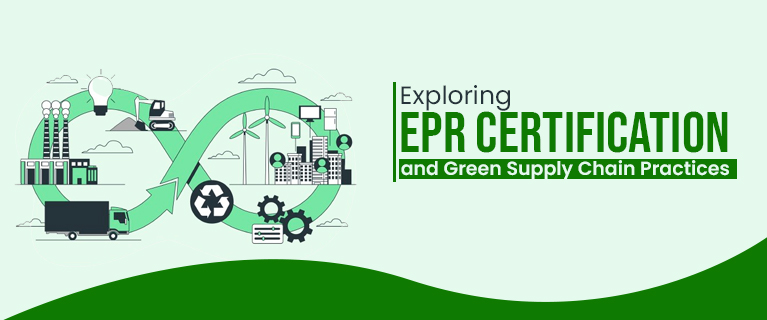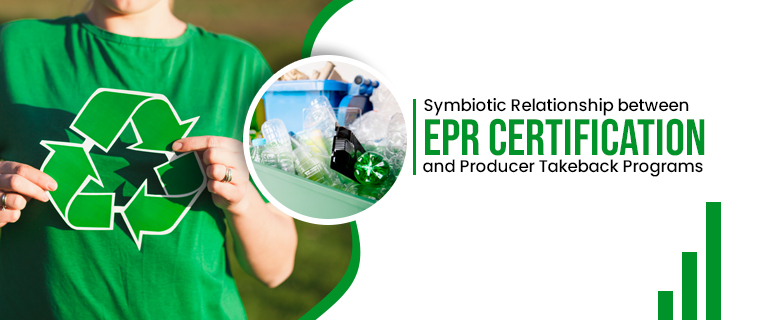Exploring EPR Certification and Green Supply Chain Practices
In an era where environmental consciousness is paramount, businesses are increasingly adopting strategies to minimize their ecological footprint. Two key pillars in this movement are Extended Producer Responsibility (EPR) certification and the implementation of Green Supply Chain practices. Let's delve into these concepts to understand their significance in fostering a sustainable future.
Extended Producer Responsibility (EPR) Certification:
EPR is a progressive approach that shifts the responsibility of managing a product's lifecycle impact from the consumer to the producer. This model encourages manufacturers to take responsibility for their products, from design and production to disposal. EPR Certification is a formal recognition of a company's commitment to managing the environmental impact of its products.
Key Elements of EPR Certification:
1. Product Design for Sustainability: EPR encourages companies to design products with the end in mind, considering factors like recyclability, reusability, and reduced environmental impact during production.
2. Waste Collection and Recycling Initiatives: EPR-certified companies actively engage in efficient waste collection and recycling programs. This involves creating infrastructure and systems to collect and process their products at the end of their lifecycle.
3. Transparent Reporting: EPR Certification requires companies to provide transparent reports on their environmental performance. This transparency fosters trust among consumers and stakeholders.
Green Supply Chain Practices:
A Green Supply Chain involves integrating environmentally friendly practices throughout the entire supply chain, from raw material sourcing to product delivery. This approach not only benefits the environment but also enhances operational efficiency and can positively impact a company's bottom line.
Read also this -: EPR Certification and the Green Supply Chain RevolutionKey Components of a Green Supply Chain:
1. Sustainable Sourcing: Adopting sustainable sourcing practices ensures that raw materials are obtained in an eco-friendly and socially responsible manner, reducing the overall environmental impact.
2. Energy Efficiency: Implementing energy-efficient technologies and processes in manufacturing and logistics helps minimize carbon emissions and lowers operational costs.
3. Transportation Optimization: Green Supply Chain practices focus on optimizing transportation routes, utilizing eco-friendly modes of transport, and reducing overall mileage to decrease the carbon footprint.
4. Waste Reduction: Minimizing waste generation and implementing recycling initiatives within the supply chain contribute to a circular economy, further reducing environmental impact.
The Synergy of EPR Certification and Green Supply Chain:
When EPR Certification and Green Supply Chain practices are integrated, businesses can achieve a holistic approach to sustainability. EPR ensures responsible product management, while Green Supply Chain practices extend this responsibility throughout the entire production and distribution process.
Benefits of Integration:
1. Enhanced Reputation: Companies with EPR Certification and a Green Supply Chain build a reputation for environmental stewardship, attracting environmentally conscious consumers.
Read also this -: EPR Certification and the Green Supply Chain Revolution2. Cost Savings: Implementing sustainable practices often leads to cost savings in the long run, as efficiency improvements and reduced resource consumption contribute to overall financial benefits.
3. Regulatory Compliance: EPR Certification helps companies stay compliant with environmental regulations, mitigating the risk of fines and legal issues.
In conclusion, the integration of EPR Certification and Green Supply Chain practices is a formidable strategy for businesses looking to thrive in an eco-conscious world. By adopting these measures, companies not only contribute to environmental sustainability but also position themselves as leaders in the global movement towards a greener future.




Comments
Post a Comment